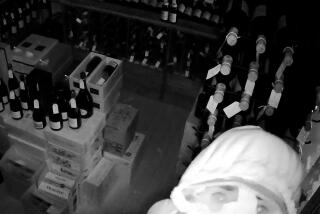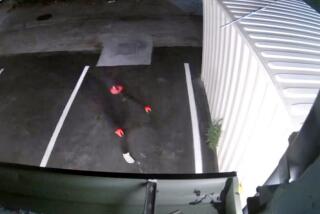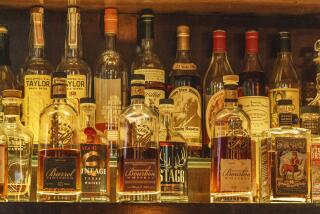Wine collector contends some of his bottles smell phony
- Share via
Reporting from Palm Beach, Fla. — William Koch didn’t mean to turn the wine world upside down.
The Palm Beach billionaire developed a taste for wine as a young man and, as he accumulated wealth, built an extensive wine collection. Among that collection: a 1787 Lafite Bordeaux with Thomas Jefferson’s initials etched into the bottle.
Except, he says, it’s a fake.
“I thought that I had a piece of history, a piece of America’s most important history,” Koch said, holding up the bottle in his wine cellar, which contains about 40,000 bottles.
His response to the alleged fakery was unheard of in the wine world: He sued the seller.
Since that initial lawsuit, he has filed four more and is working on another. He says he aims to clean up an industry where a single bottle can fetch more than $100,000.
Now, collectors are warier. Some auction houses are shunning him.
And the wine world hasn’t been the same.
“I think it started off as a gentle breeze that’s turning into a hurricane,” said Koch, who estimates spending $4 million on wine that turned out to be fake and $7 million more in legal expenses against the sellers. “I’m going after this like a junkyard dog . . . I’m not giving up.”
Koch, who made his fortune first with his father’s industrial business, Koch Industries, and later with his own energy company, the Oxbow Corp., is on the cover of December’s Wine Spectator magazine for stories detailing the growing concern over counterfeit wine.
The controversy over the “Jefferson bottles,” now widely regarded as fakes after Koch’s investigation, has changed the wine world.
“Several collectors we spoke to for our cover story complain that Koch has yet to prove anything and that he may damage the entire industry in pursuit of a few bad apples,” said Mitch Frank, associate editor of Wine Spectator. “But other collectors said they believe what he’s doing is good -- that his suits are forcing the industry to reform.”
When the first Thomas Jefferson bottles went up for auction in 1985, one sold for a record $156,000. Three years later, Koch snatched up the Lafite and three other bottles of Bordeaux also purported to be Jefferson’s, all for about $500,000.
In 2005, Koch was asked to showcase his bottles at the Museum of Fine Arts in Boston. In conversations about the bottles’ origins, questions were raised about the authenticity of the wine. He began investigating.
According to the federal lawsuit he filed in New York against the wine supplier, Thomas Jefferson’s “initials” actually were etched into the bottle with modern-day power tools. Jefferson -- a stickler for keeping records -- left none about those wines, and there was no evidence Jefferson ever engraved his initials into wine bottles, according to the suit.
According to published reports, the supplier of the wine, Hardy Rodenstock, maintains that the wine is genuine. Rodenstock, born as Meinhard Goerke, lives in Germany and could not be reached for comment. A judge is threatening to find Rodenstock in default for refusing to participate, court records show.
Koch, 69, has also sued sellers in California and Chicago, alleging they too peddled fake wine. None of the suits has concluded.
Koch is paying a price. “The auction houses are treating me as if I’m a leper,” he said, laughing.
Rare-wine auctions have changed in light of Koch’s crusade, Frank said.
“All the auction houses are being more careful today,” he said. “Hopefully, collectors are also inspecting the wines more carefully before they bid.”
Koch’s passion for wine has soured a bit, even if he does keep a sense of humor about it.
“Before, I could brag I had the real Thomas Jefferson,” he said. “Now I brag I have the fake.”


